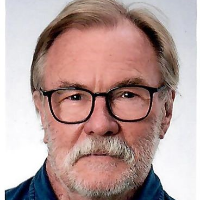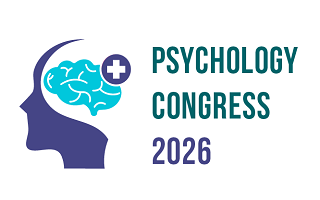3rd International Congress on
Psychology & Behavioral Sciences
March 26-27, 2026 | Osaka, Japan

Address: 1 Chome-9-15 Shinkitano, Yodogawa Ward, Osaka, 532-0025, Japan.
Psychology Congress 2026

Martin-Luther-University Halle-Wittenberg, Austria
Abstract:
Children develop cognitive abilities through sensorimotor actions, because every movement is cognitive. Sensorimotor-based cerebral structure also promotes non-sensorimotor cognitive abilities. However, they require a specifically "extended" learning-related structuring. Physical activities provide the biological foundations for academic achievement, although physical activity and academic performance should not be equated. Overall, this results in a logical link between the development and maintenance of sensorimotor skills and movement-independent cognitive abilities, memory, emotional behaviour, attitudes and competencies.
Because sensorimotor function and pain inhibition form a functional unit, healthy individuals can perform highly tiring and high-intensity sensorimotor activities pain-free. That means, training in sensorimotor skills also improves anti-nociceptive cerebral function. This includes pain tolerance, cognitive and emotional pain appraisal, and the resulting behaviour. These connections can be assumed to extend throughout the lifespan. It can be assumed that early childhood disorders or delays in sensorimotor development or sensorimotor deconditioning in early life and later in life alter cerebral structure and thus all functions with regard to personality, consciousness, emotions and memory, and pain inhibition, including cognitive-emotional pain management and behaviour.
Impaired or chronically deconditioned sensorimotor function is a proven risk factor for chronic degenerative diseases, including nociceptive pain disorders. However, when considering the consequences for brain function resulting from physical inactivity without primary developmental sensorimotor impairments (sedentary behavior), it is also important to consider whether individuals are cognitively active or inactive. I suggest, to expand the 6 factors of a healthy life style by the factor “non physical- or non sensorimotor-related cognitive activities”.
Biography:
Wolfgang Laube is a specialist in sports medicine, physiology, and rehabilitation medicine. He completed his PhD in 1990 on the topic of neurovegetative regulation and muscle fatigue at the Humboldt University of Berlin. He is intensively involved with the topics of the sensorimotor system, the resilience of the musculoskeletal system, the effects of training, the integration of sensorimotor function and pain, and lack of exercise as a cause of chronic degenerative diseases, with the primary goal of active prevention and treatment. Several textbooks on these topics he has been published by Thieme and Springer. He is a lecturer at the University of Krems and a visiting scholar at the Martin Luther University of Halle/S.
